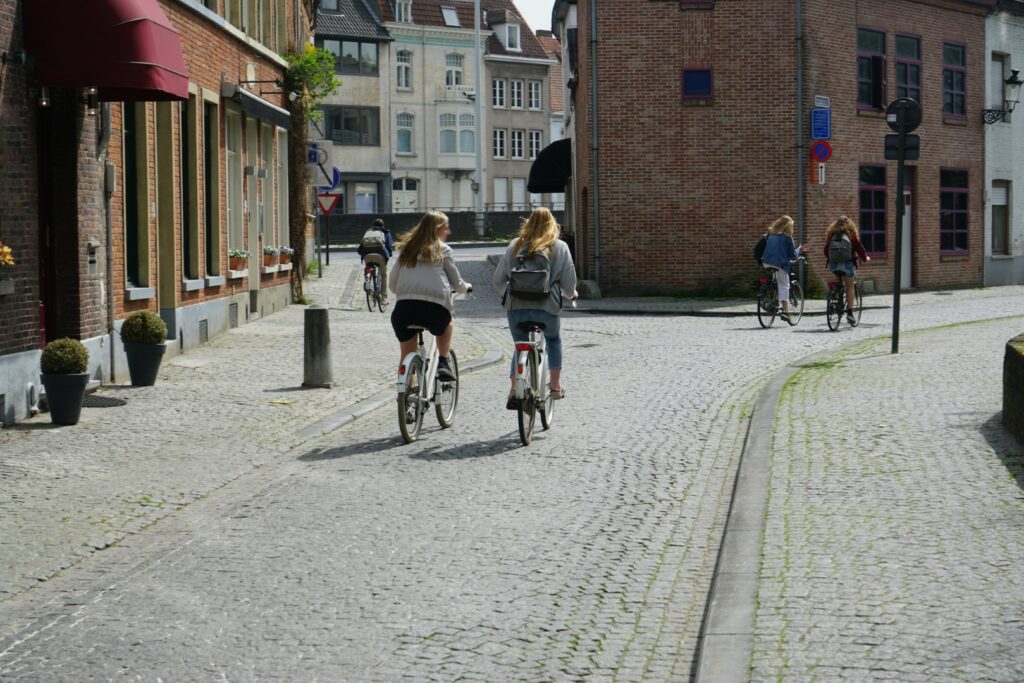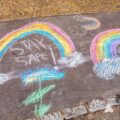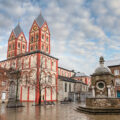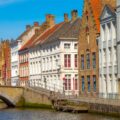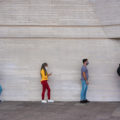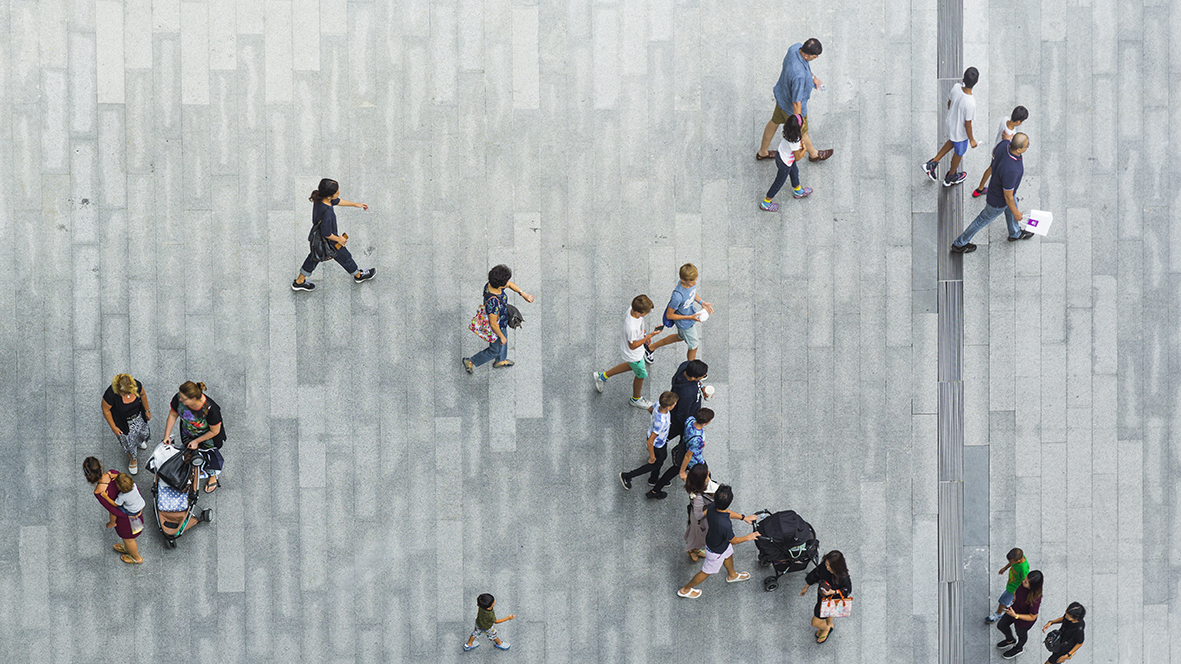How Belgium is recovering from the pandemic
How Belgium is recovering from the pandemic
Religious communities have suffered from the deprivation of social contact during the pandemic. How has COVID-19 impacted their practices?
This article is part of our series on the social impact of COVID-19.
February 2020: the virus emerges
After the unimaginably quick spread of COVID-19 in Italy and southern Europe, Belgium also detected the first cases in February 2020. What at first appeared to be an innocent flu became a nightmare scenario. During the first months of the European coronavirus crisis, Belgium topped the inglorious list of COVID-19 deaths per capita. In fact, until the beginning of March 2021, no other country had more deaths per capita. More than two years later, Belgium crossed the tragic milestone of 30,000 deaths as a result of the virus. Attempting to explain this number, scientists point to Belgium’s high population density and the central location in Europe, but also to its extremely meticulous way of counting (people suffering from cancer in nursing homes for instance, were also counted as COVID-19 deaths if they were infected, in contrast to other countries). As a result, the numbers perhaps exaggerated the situation in comparison to other countries.[1] [2]
From a response of togetherness emerged increasing division
Despite this dire news, the Belgians – like other Europeans – found an answer to the crisis: solidary. They clapped every night to support nurses and doctors and for once, the everlasting division between French- and Dutch-speaking Belgians was put aside. During the first lockdown, numerous volunteers helped the elderly and the poor, and a sense of togetherness reigned.[3]
However, as time passed, doubts about this optimism grew. The so-called ‘yoyo-policy’ with lockdowns following right after each other, caused many to lose their faith in the power of solidarity that was so important early on in the pandemic. Just as in the rest of Europe, the discussion about the vaccination campaign can be seen as embodying this division. The gap between anti-vaxxers and the rest of society grew more and more and was fed by an unstoppable stream of fake news on social media.[4]
Similar to other countries, the consequences of the consecutive lockdowns were felt in the psychologists’ waiting rooms. For young students in particular, the isolation was a hard cross to bear.[5] Many sought relief in lockdown parties,[6] but this only widened the gaps between generations and societal divisions.
Religious answers in changing times
In Belgium, religion was not put first by the government when deciding on restrictions to limit the spread of the virus. Masses and other religious services were not possible during the various lockdowns. According to some, this was even more the case than in other countries. Let’s take a look at how different religious communities, in particular Christians, Jews, and Muslims, reacted to this serious challenge.
A loyal follower: the Catholic Church
The Christian Catholic Church historically helped to establish Belgium[7] and fought the pandemic side by side with the government. Bishop Bonny of Antwerp explains that it was a conscious choice to establish themselves as loyal to the government’s decisions.[8] All over the country, churches started organising live streams so as not to abandon their parishioners.[9] When the question of vaccinations arose in the public debate, the Belgian bishops loyally referred to Pope Francis and his call to Catholics to be vaccinated.[10]
Despite the fact that the Catholic Church never officially criticised the harsh limitations, some believers and even theologians did. Hans Geybels from the KULeuven, for instance, wrote in an opinion article that neglecting the needs of religions right in the time of crisis was unjust. He asked: why can people stand close to each other in shops, but Mass – even with distance measures – is not possible?[11]
Bishop Bonny furthermore stressed that the impact of COVID-19 was severe: “People have to deal with more and more sorrows. Not being able to help them as we could hurts me.” On the other hand, he is also hopeful for the future of the Church after COVID-19, as he explains that the pandemic has shown us not only that life should be more than working in an office, but also how important social networks and religion are.[12]
The Muslim community: scapegoat or loyal follower?
The Islamic community is historically relatively new in Belgium. However, the Muslim community is young and growing quickly. Already 7.6% of the Belgian population is a follower of the Islamic faith: the majority of them are Moroccans and Turks, descendants of immigrant workers in the 1960s.[13]
Despite the tendency in other countries to exaggerate Muslims’ violations of the coronavirus measures and scapegoat Islam,[14] [15] [16] the Belgian Muslim community followed the restrictions. The period of Ramadan for instance, had to be held in lockdown twice (in 2020 and 2021) but the overwhelming majority could be seen as exemplary followers of the rules. Some mosques even installed screens to livestream meetings in a professional way.[17] Furthermore, the Muslim Executive (head of all Muslims in the country) repeatedly called believers to follow the measures and to get vaccinated.[18] [19]
Orthodox Jews in Antwerp stand for religious rights
Antwerp, the second-largest city of the country, hosts a true ultra-Orthodox Jewish neighbourhood like New York and Jerusalem. Here, around 25,000 Jews live a strictly religious life and speak Yiddish as their mother tongue. In the beginning of the pandemic, a small minority of this Jewish community disregarded the rules and gathered in synagogues even though this was strictly forbidden.[20] This tendency corresponds with the behaviour of some ultra-religious Jewish communities in Israel and the USA.[21]
In the second lockdown in autumn 2020, members of the community even went to the Council of State to demand the right of gatherings in the synagogue. At that time, marriages for instance were only possible with five attendees, but the Jewish law demands at least ten men for a valid marriage. The strict rule, which was heavily criticised, was abolished as the court argued that the limitations on religious services were disproportionate:[22] [23] the right to religion is enshrined in the Constitution. The victory of religious services was also welcomed by Catholics and other religious groups.
What is next?
As expressed by Bishop Bonny, the pandemic has shown how vital local networks and religious services are. In addition, many may have had more time to appreciate a spiritual life. The spirit of reconciliation and solidarity – two Catholic key values – of the first lockdown could also have given the Church a boost.
However, the limitations of Masses also caused many to lose the habit of going to Church, as digital alternatives were not possible for everyone. On the other hand, the digitalisation of religious services does provide new opportunities for the future. The same, of course, can be said of all religious communities, with each of them suffering from the deprivation of social contact. The following years will be crucial to determine the impact of COVID-19 on religious communities.
Want to learn more about similar topics? Go to the EARS Dashboard.
Sources
[1] België rondt officieel trieste kaap van 30.000 coronadoden: wie zijn ze en stierven ze dóór of mét covid? | VRT NWS
[2] Verbod op publieke kerkdiensten: een mens leeft van meer dan brood alleen | VRT NWS
[3] Van Antwerpen tot Brussel: ons land applaudisseert voor “onze helden van de zorg” | VRT NWS: nieuws
[4] Corona verdeelt: Wat nu? Luister ook naar kritiek op maatregelen, adviseert OCAD | VRT NWS: nieuws
[5] Coronacrisis heeft sterke impact op studenten: “Meer angst, stress en somberheid” | VRT NWS: nieuws
[6] 23 jongeren veroordeeld voor lockdownfeestjes in Antwerpen: “Egoïstisch en asociaal” | VRT NWS: nieuws
[7] ‘De kerk heeft het land mee gemaakt, en wil het mee blijven maken’ | De Standaard Mobile
[8] ‘De kerk heeft het land mee gemaakt, en wil het mee blijven maken’ | De Standaard Mobile
[9] Gezegend hij die streamt in de naam des Heren | De Standaard Mobile
[10] Bisschop Bonny en viroloog Van Gucht roepen op tot vaccinatie | Kerknet
[11] Verbod op publieke kerkdiensten: een mens leeft van meer dan brood alleen | VRT NWS
Note that these measures date from the second lockdown, which in Belgium started in November 2020.
[12] ‘De kerk heeft het land mee gemaakt, en wil het mee blijven maken’ | De Standaard Mobile
[13] Mogelijk dubbel zoveel moslims in België tegen 2050 | VRT NWS: nieuws
[14] ‘Uitbraak coronavirus in Haagse moskee na schenden maatregelen’ | NOS
[15] Elke epidemie heeft haar zondebok nodig | De Standaard Mobile
[16] Ook nu zijn moslims door hardnekkige geruchten weer de zondebok in India
[17] ‘Ook al zit je alleen thuis, je voelt je deel van een groter geheel’ | De Standaard Mobile
[18] Moslimexecutieve roept moslims op om zich te houden aan de officiële communicatie | Het Nieuwsblad Mobile
[19] Check: Zijn de Belgische coronavaccins halal en koosjer? | VRT NWS: nieuws
[20] Politie legt bijeenkomst in synagoge stil: Joodse gemeenschap betwist wetsovertreding, maar is dat terecht? | VRT NWS
[21] Ultra-orthodoxe joden in Israël houden zich niet aan coronamaatregelen | NOS
[22] Raad van State veegt verbod op religieuze erediensten van tafel | De Standaard Mobile
[23] ‘Waarom gaat vrijheid om te shoppen voor op godsdienstvrijheid?’ | De Standaard Mobile
